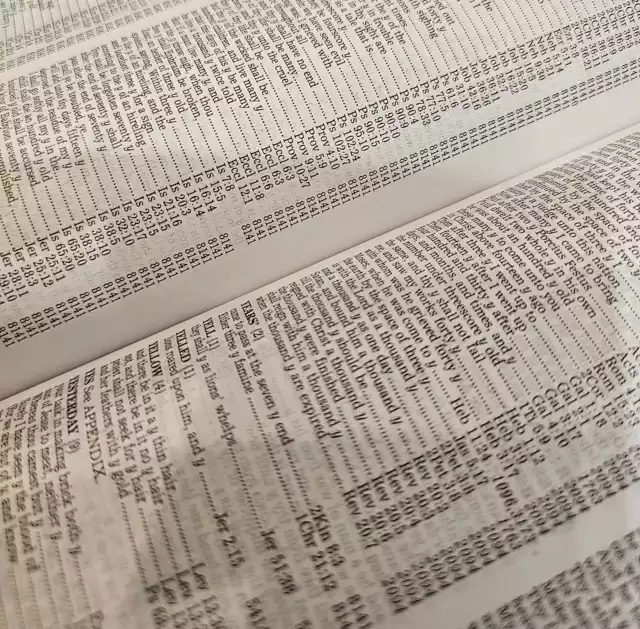 The Jesus Seminar was a controversial group of academics and laymen founded in 1985 that used debate and voting to determine which sayings and deeds attributed to Jesus in the Gospels were authentic. Their conclusions sparked debate in religious and academic circles regarding the search for the historical Jesus.
The Jesus Seminar was a controversial group of academics and laymen founded in 1985 that used debate and voting to determine which sayings and deeds attributed to Jesus in the Gospels were authentic. Their conclusions sparked debate in religious and academic circles regarding the search for the historical Jesus.
Unorthodox Beginnings – The Founding of the Jesus Seminar
The Jesus Seminar was the brainchild of Robert Funk, an iconoclastic biblical scholar with an unconventional resume. Unlike many academics, Funk did not receive formal training at a theological institution. His background was actually in the Classics, having obtained his Ph.D. in New Testament Studies from Vanderbilt University. This perhaps gave Funk a fresh perspective outside the norm of biblical scholarship. Known among students for his witty, provocative style of teaching, Funk was less constrained by traditional assumptions. He became dissatisfied with what he saw as a lack of progress in historical Jesus research in academia by the early 1980s. Funk dreamed of shaking up New Testament studies and updating the quest for the historical Jesus to be more scientific and relevant to the current age.
In 1985, Funk laid the groundwork for his ambitious endeavor when he founded the Westar Institute as an independent think tank fostering biblical scholarship and archaeological research. He then initiated plans for the Jesus Seminar, recruiting a mix of academics across a wide spectrum of theological viewpoints along with non-specialist participants. This inclusion of non-traditional voices was intentional, as Funk valued fresh eyes on biblical texts and rigorous debate. He often said that discovering who Jesus truly was needed to be a public discussion, not just isolated to the ivory towers of academia or religious institutions.
The Jesus Seminar convened its first session in March of 1986, composed of 74 men and women biblical experts, historians, writers and laymen gathered in Berkeley, California for an unconventional mission.
Methodology and Findings – The Jesus Seminar’s Radical Approach
The Jesus Seminar did not follow the standard decorum of staid academic conferences. From the beginning, their meetings and methodology matched their provocative mission. Sessions often took place in lounges or venues with a casual atmosphere rather than university lecture halls. The diversity of participants also broke conventions, as writers and laypeople deliberated alongside veteran scholars. But their voting system became the Seminar’s most radical departure from tradition.
In a technique more reminiscent of Roman gladiators than religious exegetes, members voted on statements and acts attributed to Jesus in colored beads. A red bead indicated the voter strongly believed Jesus did or said something. Pink beads meant the member thought a saying or act closely matched Jesus’s style but may have originated in the early Christian community. Gray beads indicated doubts of authenticity, while black beads rejected that Jesus was the origin. This bead-based spectrum aimed to add scientific rigor, but some critics argued it forced shallow judgments on complex textual analysis.
Beginning in 1986 and continuing at biannual meetings over seven years, the Seminar combed through the sayings and deeds of Jesus recorded across a range of early Christian and Gnostic texts. Their final findings reported in 1993 indicated that only about 18 percent of the words and actions examined could be confidently attributed to the historical Jesus. The Seminar concluded that the supernatural Jesus and extensive claims about his life emerged later from his dispersed followers, accruing legendary elements over oral transmission. For Funk and many Seminar scholars, finding the authentic first-century rabbi meant stripping away embellished invention to reveal the mere man behind the mythology.
While controversial, the Jesus Seminar opened historical Jesus studies to rigorous debate around the origins of Christianity. Their provocative methods sparked vital ongoing discussions.
References
Funk, R. and the Jesus Seminar. (1998). The Acts of Jesus. HarperOne.
Johnson, L.T. (1999). The Real Jesus. HarperOne.
The Blackwell Companion to Jesus. Delbert Burkett. John Wiley & Sons
The Gospel according to the Jesus Seminar. Birger A. Pearson. Volume 25, Issue 4, October 1995, Pages 317-338.
Theissen, G. and Merz, A. (1998). The Historical Jesus. Fortress Press.
